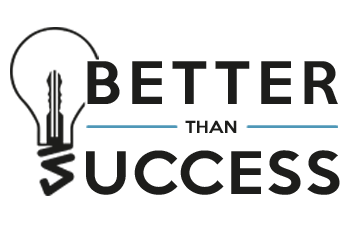On episode 122 of the Better Than Success Podcast, hots Nicole Purvy talks the Top Accounting Tips that Could Save You Millions in Your Real Estate Business with Yvette Mitchell.
How can you save millions in your real estate business?
After doing taxes since she was 16 years old, Yvette Mitchell shares her knowledge and tax advice that can save any business owner millions. The first thing Yvette expresses before going into depth about the top tax tips to save you millions is knowing the difference between a tax accountant and a tax preparer. This is super important to know the difference in especially if you are a business owner of any sort. Yvette shares that a tax accountant is someone who has unlimited practice rights in front of the IRS and a tax preparer is someone who is trained to use the tax system but not necessarily someone who can represent you in front of the IRS. The importance of knowing the difference will help you understand the tips for saving you money running a business. During this episode, Yvette explains some key loopholes for businesses as well as real estate investors.
Understanding tax avoidance and tax evasion is also a key point made by Yvette throughout this episode. Tax avoidance meaning it is 100% legal and reduces taxes by legal means whereas tax evasion tetters on a criminal act and refers to criminal non payment of your taxes.
Top 10 tax tips when it comes to CYA (cover your assets)
#1 – Failing to plan
If you have something you want to do or a goal you want to achieve… You have to have clear goals on what you want to do for your business then you need to figure out a strategy with your tax accountant.
A lot of people do not add this to their business game plan and end up spending thousands in taxes at the end of the year that they could have avoided.
If you have a higher net income you will have a higher tax bill.
“Taxes is your largest transfer of wealth” says Yvette. Depending on your tax rate you may be giving 30% of your income.
Get into the habit of getting your money as you earn it.
#2- Documentation
The IRS gets most people because they fail to document… Not keeping correct documentation will hurt your business in the long haul. If it is legitimate and part of your business .. you can write it off. You are entitled to every loss that you earned.
You can write of dinners (if you are talking about business of course…)
#3 – Audit paranoia
Yvette addresses the common interpretation that anyone can get audited by the IRS. You should not have a fear of being audited if you are doing everything legit with your business. “You are allowed ordinary and necessary costs”.
Also… Remember, different businesses have different flags. As a business owner with multiple businesses you need to set up multiple entities.
#4- This tip is for Real Estate investors
Depreciation… Depreciation… Depreciation!
When you buy a residential home you are able to depreciate the value of the property over the course of 27.5 years. This is usually a deduction that people always miss.
Depreciation can really add up …
This is free money you do not want to leave on the table.
#5 – Repairs vs Improvements (Real Estate Investors)
Set what will be written off ahead of time with you tax accountant.
Improvements need to be written off over the course of your lease.
If it is a residential house it goes into regular depreciation.
You have to show the IRS that repairs are actual repairs in your investment homes and not improvements. This is a major, major key.
#6 – As a business owner, we should be doing “business trips”
The IRS will allow you to write off any travel related to business. BUT… before you leave out:
-Set up appointments when you travel…
-Schedule to see properties,
-Take another realtor out to lunch
etc.
As a real estate investor/business owner, learn how to fully utilize your business.
#7 – Know the difference between an investor and a dealer…
Investors can do 1031 exchange because it is passed through corporation.
As a buyer and flipper you are inquiring inventory and IRS will classify you as a ‘dealer’.
Therefore, you are subject to self employed income.
When you open you business you need a conversation with accountant it may cost $300 but will save you thousands!!
#8 – Employ Your Family
Your kids can work for you from 7 years young to 17 years old. You can, in fact, pay your kids through your business…
Example: Yvette paid her son for doing work for her business and was able to write it off as tax deduction.
What can you kids do? They can dust… take out the trash etc… But before you employ your family/children you need to know you can’t pay them less than minimum wage.
Your child is taxed at a lower rate.
#9 – Create a home office
As a business owner, you may work out of your home… you need to take full advantage of that.
You need to have a designated home office (at least ⅛ of your home).
#10 – Meals of Entertainment
A lot of people are scared to write this off. Don’t be scared but know you need to keep receipts!
Business development counts…. Example: Having a summer cookout with clients… that is a business expense.
Don’t leave your meals out.. And keep track of them
$7 may not seem like a lot but over a year it will add up…



